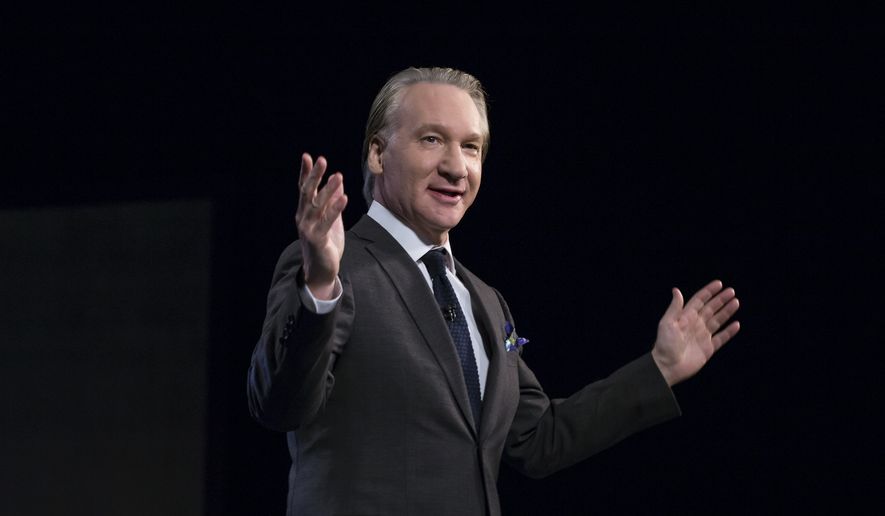ANALYSIS/OPINION
There is no church on Sunday. There are also no dietary requirements. Nor are there required days of the year set aside for worship of G-d, gods or a higher power.
As Bill Maher said, “Atheism is not a religion.”
In this sense, he is correct.
However, religion and faith are not mutually exclusive even in the most secular of definitions.
All people have faith that what they believe at this moment is correct, whether it come from biblical texts or science books. However, there is a major difference in how atheists and religious people reconcile information that is contradictory to what is currently believed.
With modern science or atheism, a new concept may be met with opposition, but once it becomes established, old texts and beliefs are scrapped and referenced for limited purposes.
For example, the lobotomy was considered sound science until 1967, when it became banned. It is important to remember that these were certified, educated doctors that made this mistake and not charlatans. Nobody is perfect, and medicine has brought great leaps and bounds to end suffering around the world. In this particular case, however, there was a mistake. The lobotomy is now regarded as the 20th century equivalent of leeching and bloodletting — which even practitioners of its day truly believed to be good medicine.
The general point of view is that these were mistakes of the medical past. While this is certainly a progressive viewpoint, it does perpetuate a certain overconfidence in what we believe to be true now. Nobody wants to admit that what diet, medication or surgery they are living by may in fact be the 21st century’s equivalent of yesterday’s lobotomy.
At the same time, religion has a different hurdle. What happens when information conflicts with the current understanding of biblical text? What is a religion to do?
Do its representatives condemn the new information a heresy, as the Vatican did with physicist and astronomer Galileo for proving the Earth in fact revolves around the Sun and not the other way around? Or even the book burning by Jews of Europe against the teaching of Rabbi Moshe ben Maimon, also known as Maimonides or the Rambam — now considered to be the Moses of the last millennium?
Do they argue that the biblical text actually teaches or alludes to this but they, as imperfect humans, had missed it, mixed and hidden among other verses? The alternative being that the new information is in conflict with the established text, but there is the world of faith and the world of science.
Reflecting back, it is important to note that the Vatican pardoned Galileo over 350 years later in 1992, and the Rambam’s teachings are considered to be the cornerstone of study among Jewish communities today.
Certainly, religion has a more difficult task than atheism when it comes to new sciences, medicines, philosophies, etc., because it must always make sure that it is coherent and not opposing a physical text already.
Even within a religious text, things are complicated when, for example, it is common knowledge that one is not to mix meat with milk (Exodus 23:19; Deuteronomy 14:21). However, the Hebrew word “milk” is identically written to the word that means “fats.” Therefore, does this mean one is not to mix the fats or milk of the mother with the flesh of its child? Both perhaps?
Something similar occurs in atheism. New information is also met with opposition but, unlike religions, it does not have to make the new information coherent with the older “doctrine.” The old guard can be replaced at the drop of the hat.
Opposing information for both groups is usually met with denial, anger and hostility. It is only later, when this “newfangled” way of understanding the world becomes the cultural norm, that it also becomes acceptable.
Albert Einstein once said, “Great spirits have always encountered opposition from mediocre minds. The mediocre mind is incapable of understanding the man who refuses to bow blindly to conventional prejudices and chooses instead to express his opinions courageously and honestly.”
In this vein, there are similarities, but they do not end there.
Both the religious and the atheist do believe and have faith that what he or she currently believes is correct, and it is hard to accept that something as obvious as the apparent is wrong no matter how times this has been proven to be so.
Yet, at the end of the day, both the faithful and the atheistic do have faith in this tenet, and it is not their belief but, rather, how each deals with the new situation and information that makes the two different.
Certainly, atheism is not a religion by definition, but those who adhere to it place “faith” in science and the natural world as opposed to there being a G-d and angels. Only the way in which information is assimilated or rejected is different.




Please read our comment policy before commenting.